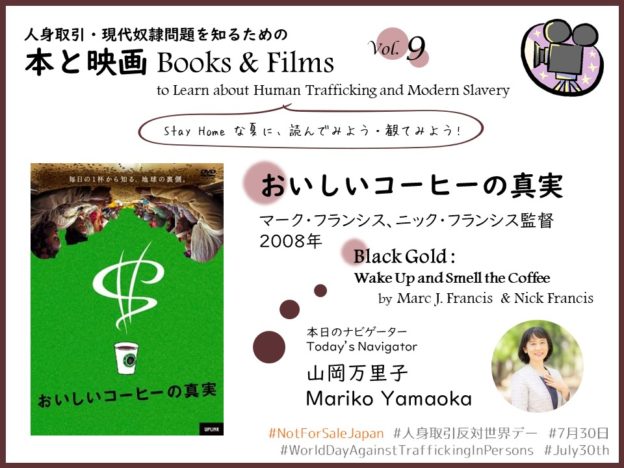Today I am writing, as always, with a cup of coffee in hand. Coffee is the second largest product traded in the world after oil. Since “fair trade” coffee has become so popular, I have assumed it means that “unfair trade” is also rampant in the industry. But to be honest, I didn’t expect that it would go this far—until I saw this film.
Oromia, Southern Ethiopia. For coffee farmers, the selling price for one kilo of beans (to make 80 cups of coffee) is only 24 yen. At about 300 yen per cup in a café, this means only 0.1% is paid to the producer. That’s because in the coffee industry, dominated by four giant companies such as Nestlé, international trade prices are set in the New York exchange market and six intermediaries exist between producers and consumers.
Tadesse Meskela is the manager of the Oromia Coffee Farmers Co-operative Union. In an effort to improve the lives of the growers (to keep their children in school, nutritiously fed and given safe water), he travels to Europe and the United States, visiting conscientious businesses, exhibiting at coffee fairs and looking for roasters who will buy directly from them. Sometimes he sighs out of disappointment when he can’t find Ethiopian coffee among the dozens of products on the supermarket shelves.
The words of one of the farmers’ adult sons pierce me: “I’m sorry to have to say to my hard working father that I’m not going to be a coffee farmer myself. Our family is miserable because of coffee growing.” Another grower says he will cut down his coffee trees and plant a drug plant that will yield much a larger profit. Seven million people in Ethiopia receive emergency food aid each year. It’s not that there isn’t any work, but rather that even if they work extremely hard, their products are bought out so cheaply by exporters that farmers can barely survive. Considering the expression used in the Japanese title for this film, “The Truth about Tasty Coffee”, the reality is so bitter and sad.
Japan is the fourth largest coffee consumer in the world. This means that if we choose fair trade or directly-traded products, this situation will surely change. Why don’t we at the destination point of the supply chain support people like Tadesse, who are struggling at its starting point? (Mariko Yamaoka)
(*I should add that although there is a depiction in the film that is implicitly critical of Starbucks, now nearly 15 years after the time of filming, the company is focusing on ethical sourcing.)
(Directed by Marc Francis & Nick Francis, Released in 2006, 77 min.,
Available at Vimeo for $5: https://vimeo.com/ondemand/blackgold
Trailer: https://vimeo.com/ondemand/blackgold/25666594 )

